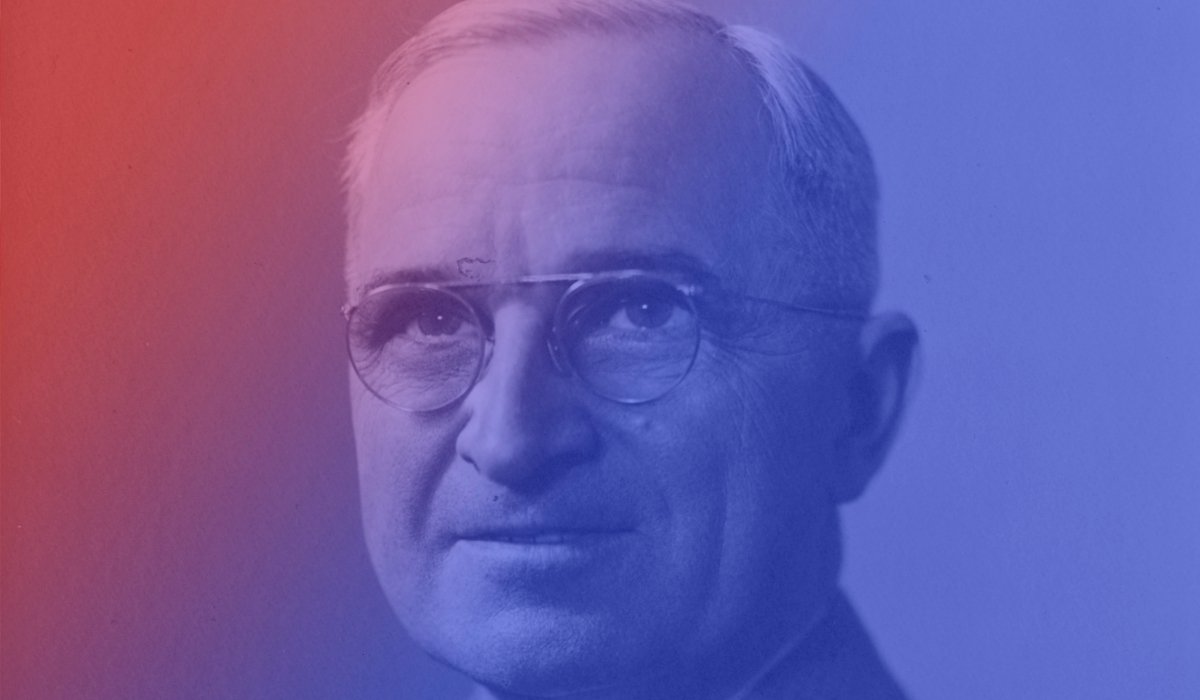Many forget that it was not, in fact, Franklin D. Roosevelt who dropped the atom bomb on Japan to effectively end the Axis threat during World War II. That was Harry Truman, who became president only after Roosevelt died suddenly of a brain hemorrhage on a warm day in Georgia during the spring of 1942.
Truman, a World War I veteran, would be responsible for helping chart the course of American history from there.
Here are five fun facts about the 33rd president:
He was an uneducated farmer

Truman became a captain after serving in the 129th Field Artillery. (Wikimedia Commons)
Truman never went to college, according to bio. Instead he took up the old family business of farming and raising mules, something he learned growing up during the 1890s in Independence, Missouri.
As a young man he would bounce around working odd jobs as a railroad timekeeper, a clerk, and a bookkeeper at banks in Kansas City. Then at age 33, he organized his area’s National Guard regiment for World War I, during which he proved himself on the field of battle in France.
He married his high school sweetheart
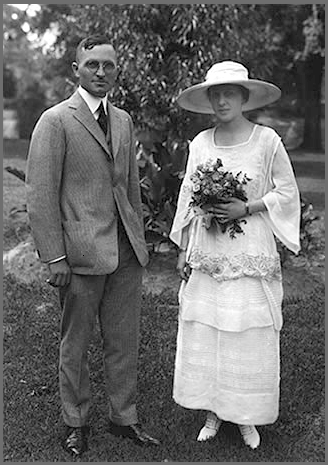
The Trumans on their wedding date. (Wikimedia Commons)
After returning from the war, Truman married his high school crush, Elizabeth “Bess” Wallace. They had a daughter together as Mr. Truman attempted to become a businessman, although like many young men he failed due to the economic conditions of the 1920s. As the Roaring ’20s led to the Great Depression, Truman would pay back his debts and re-focus his efforts on public office.
He was an unlikely Senate candidate
Seeking someone to throw his weight behind, Democratic boss Thomas Pendergast found a willing compatriot in Truman. Pendergast helped him get elected to become a judge in Jackson County. After paying dues on the county bench, he would go on to rum for the Senate in 1934 — only after Pendergast was turned down by several other men to seek the office.
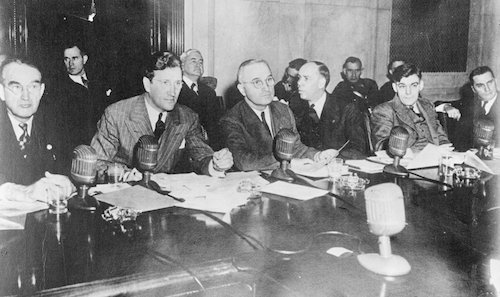
The Truman Committee in 1943. (Wikimedia Commons)
After heavy campaigning, Truman actually won, and went on to serve on the Senate Appropriations Committee as a leader responsible for allocating tax money for President Roosevelt’s New Deal projects. The Truman Committee was later formed so that good-natured senators could find and penalize wartime inefficiencies and illegal profiteering.
He barely had time to learn the vice presidency
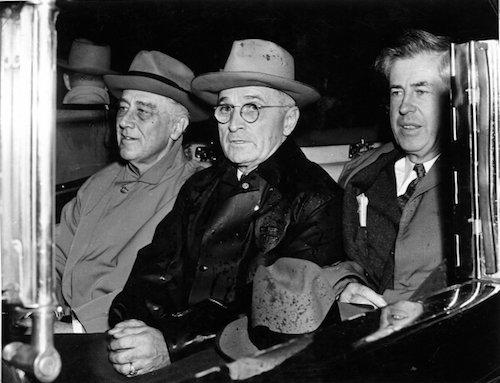
President Roosevelt and Vice President Harry Truman. (Wikimedia Commons)
FDR conducted most of his business outside of Cabinet meetings behind closed doors, leaving Truman woefully under-prepared when he assumed the presidency in 1942. “I felt as though the moon and the stars and all the planets fell on me last night when I got the news,” Truman famously quipped. “I have the most terribly responsible job any man ever had.”
It was only after Truman began serving as president that the job of the vice presidency changed in importance, when their work became more useful and their briefings from the president more detailed.
His presidential legacy is one of mixed successes
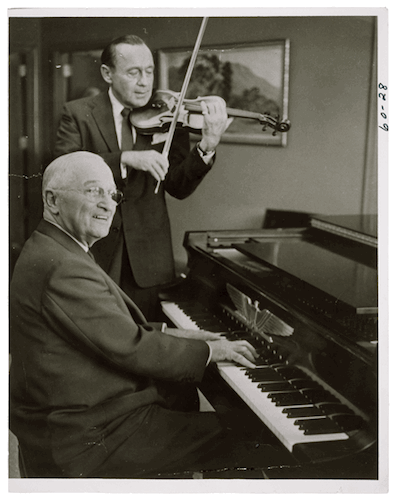
President Harry S. Truman Playing the Piano While Jack Benny Plays the Violin. (Wikimedia Commons)
Within six months of becoming president, Truman would accept the Germans’ surrender, drop atom bombs on Hiroshima and Nagasaki, and sign the charter ratifying the United Nations. And from there, his legacy gets a little murky.
Voters helped install an opposition Congress in 1946, when Republicans were elected to control both houses. Many thought that would lead to a loss to New York Governor Thomas Dewey in the presidential contest, although he escaped with a victory to lead the nation in a second term.
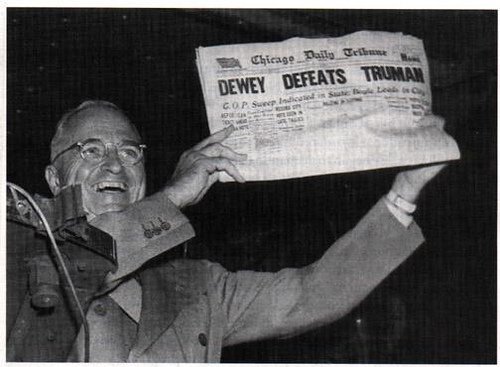
While he oversaw the end of racial discrimination in federal hiring under his “Fair Deal” program, his ideas for universal healthcare and more funding for education were soundly defeated. His efforts to conduct the Korean War, even in the face of public opposition from such heroes as Gen. Douglas McArthur, were met by cold public opinion.
Another famous general would soon replace Truman in office, leading to eight years of Republican control in the White House.
